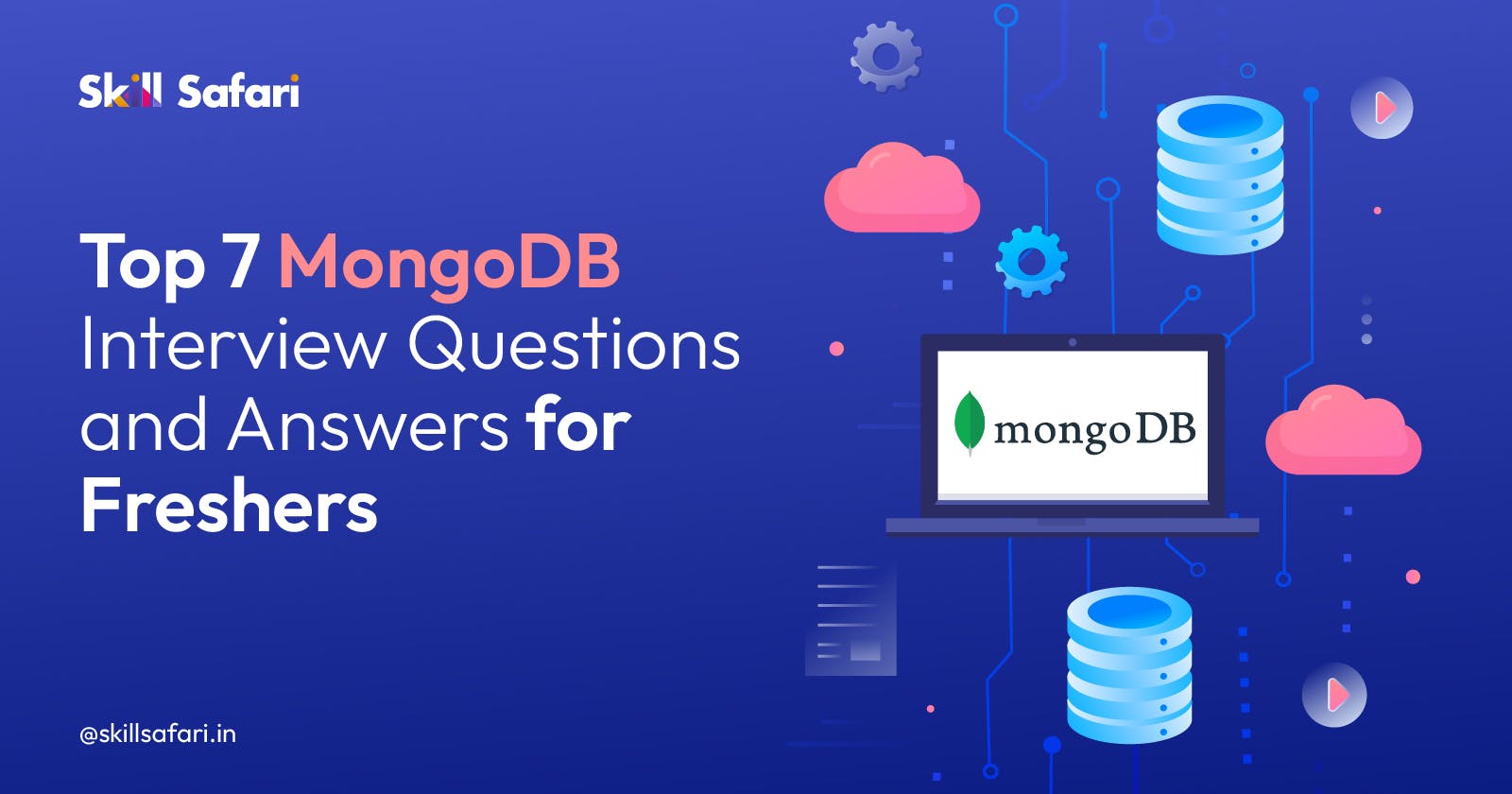Using the document database MongoDB, developers can build web applications that are highly scalable and available. The Top 7 MongoDB Interview Questions and Answers for Freshers are covered in detail in this article.
What is MongoDB?
MongoDB is a document-oriented database application with cross-platform compatibility and high performance. The fact that MongoDB runs on several different platforms and has excellent availability and scalability makes it the best NoSQL database.
Key Features of MongoDB?
Ad hoc queries:
MongoDB supports Ad hoc queries; Ad hoc queries mean a query in which we can search for data based on the field, based upon the data.
Indexing:
When a document contains a large number of fields, indexing is made much simpler because we can easily index any of the fields.
Replication :
MongoDB supports replication between master and slave. You might be wondering what master and slave mean at this point. The slave copies data from the master and is only able to read it; it cannot write data. The master can perform operations like reading and writing while the slave copies data from the master.
Duplication of data :
The fact that MongoDB can run across multiple servers makes it simple to duplicate data created on one server onto other servers, ensuring that users of different servers can still access the same database in the worst-case scenario of system failure or hardware failure.
Load balancing:
We have an automatic load-balancing configuration in MongoDB that divides concurrent client requests among several database servers to lessen the load on any one server. Load balancing aids in enhancing the database's performance.
What is the difference between MongoDB and MySQL?
Despite the fact that MongoDB and MySQL are both free and open-source databases, there are many differences between them in terms of data representation, relationships, transactions, data querying, schema design and definition, performance speed, normalisation, and many other factors. As with relational and non-relational databases, MySQL and MongoDB are comparable.
What are the benefits of using MongoDB?
Security:
MongoDB offers a variety of security features to help ensure the security of your data.
High performance:
MongoDB has a very high-performance level and can store and process large amounts of data very quickly.
High Availability:
MongoDB is made to be highly available and resilient to failures.
Easy to Use:
With a straightforward query language and strong indexing capabilities, MongoDB is made to be simple to use and learn.
Scalability:
You can store data on multiple servers and process it using MongoDB, which has a high degree of scalability.
Flexibility:
MongoDB is a document database that enables you to store data in a flexible and dynamic manner.
What is CURD in MongoDB?
The CRUD operations in MongoDB are ways to communicate with a MongoDB server, and it also provides CURD operations to facilitate more effective database operations. The main techniques you will use to manage the data in your databases are CURD methods. CURD stands for
Create - C
Update - U
Read - R
Delete - D
Sample :
Create-db.collection.insert();
Read-db.collection.find();
Update-db.collection.update();
Delete-db.collection.remove();
What is BSON?
BSON documents, which are a binary representation of JSON documents but contain more data types than JSON, are how MongoDB stores data.
Profiler in MongoDB?
The MongoDB database profiler displays the performance characteristics of each operation against the database. The profiler allows you to identify queries that are running more slowly than they ought to.
Conclusion:
The most crucial MongoDB interview questions and answers for freshers in 2023 are those that were just mentioned. Enroll in our Fullstack development program if you want to learn how to create web applications from scratch and become a candidate who is prepared for employment in six months. Visit the following link to learn more about our Program: SkillSafari
Also read our article: blog.skillsafari.in/website-vs-web-applicat..

